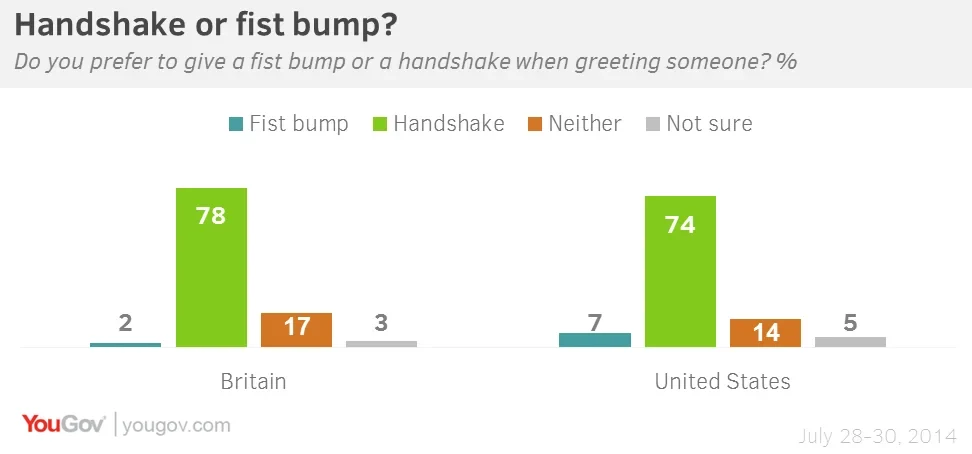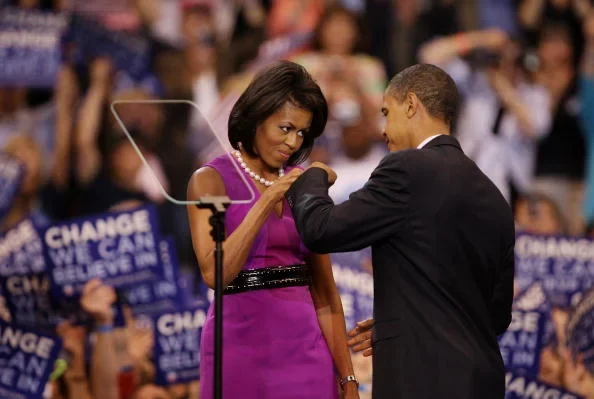Despite calls to adopt the fist bump instead of the handshake for health reasons, there is no evidence that people in Britain or America are taking to it
Researchers recently revealed that a common way of greeting people might be posing a public health risk. According to a new study from scientists at Aberystwyth University in Wales, handshakes transfer more bacteria than other forms of hand-to-hand greetings. The safest hand manoeuvre tested was a fist bump, with the high-five somewhere in-between a shake and a bump. The researchers have called for widespread adoption of the fist bump – at least during flu season.
New YouGov research into greetings finds no evidence that the fist bump is becoming a popular greeting – not particularly in the United States and not at all in Britain.
Only 2% of British people say they prefer to give someone a fist bump over a handshake, while 78% prefer the traditional method. 17% don’t like either.
Younger people are significantly less likely to pick the handshake, but more than six in ten (65%) 18-24 year olds still do (compared to 85% of over 60s). 6% of British people in the youngest age group prefer to bump fists.
Americans are only slightly friendlier to the fist bump: handshake is on 74% and fist bump 7%.

One of the groups most firmly against the fist bump are Republicans, who are more likely than Democrats to prefer a handshake by 10 points (85% versus 75%) and less likely to prefer a fist bump by 6 (3% versus 9%).
The difference is not very significant, but it might not be surprising if the fist bump has become politicised in the United States, where President Barack Obama, a Democrat, has made the fist bump part of his personal brand (a TV anchor's characterisation of the president's gesture as a "terrorist fist jab" was famously satirised on the cover of New Yorker magazine).

Interestingly, American independent voters – those who don’t identify as a Republican or a Democrat – are nearly twice as likely as other voters to prefer “neither” hand manoeuvre (19% versus 10% for both Democrats and Republicans).
Both surveys were conducted after the release of the recent study into bacteria and touching.
YouGov's survey also investigated how frequently high-fives take place in the workplace. The hand-to-hand slap is conventionally reserved for celebrations of accomplishment and camaraderie, but was employed recently by the prime minister when meeting the President of the European Commission, Jean-Claude Juncker.
By high-fiving while on the job, Mr Cameron is in the minority – only 29% have ever done so at work.
Image: Getty







